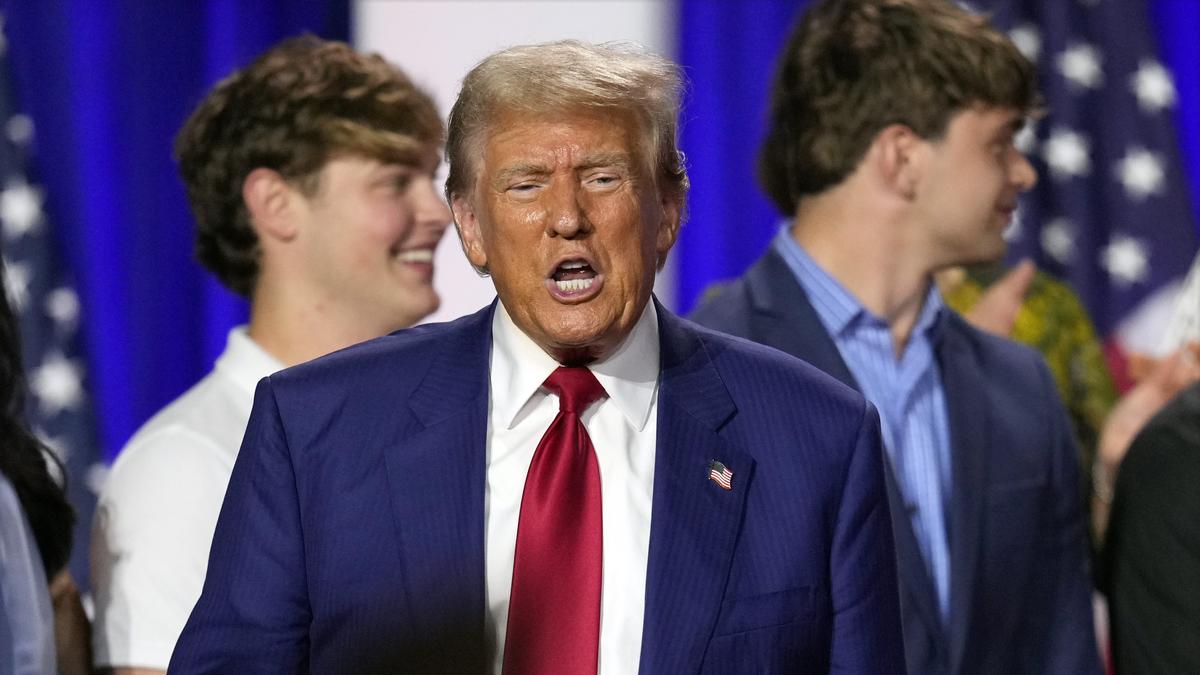Donald Trump, facing a conviction in a New York state court for falsifying business records, has filed a motion seeking federal court intervention in his hush money case. The move, aimed at overturning his conviction and delaying his sentencing, hinges on claims of constitutional violations and alleged conflicts with the Supreme Court’s recent ruling on presidential immunity.
Trump’s Bid for Federal Intervention: A Second Attempt
This isn’t the first time Trump has sought to shift the case from state to federal court. Last year, a federal judge denied his request, paving the way for his trial in Manhattan. The latest motion argues that the state-level prosecution violated Trump’s constitutional rights and conflicts with the Supreme Court’s recent ruling on presidential immunity, highlighting an ongoing legal battle surrounding his legal woes.
Trump’s Constitutional Claims:
The heart of Trump’s legal argument centers on a perceived breach of his constitutional rights during the state prosecution. His lawyers argue that the case against him in New York is politically motivated, aiming to unfairly target him. They point to the timing of the charges, coinciding with his 2024 presidential campaign, suggesting a bias against him. However, this argument, often touted by Trump’s legal team, is heavily reliant on the premise of a politically motivated prosecution, a claim yet to be definitively established.
The Shadow of Presidential Immunity:
Another key element of Trump’s plea for federal intervention involves the US Supreme Court’s recent ruling on presidential immunity. While the ruling did not directly involve Trump’s case, his lawyers contend that it implies immunity from state prosecutions even after leaving office, an argument facing substantial challenges in legal interpretations. Trump’s lawyers believe that the ruling strengthens their claim that a federal court, unaffected by alleged local hostilities, is necessary to provide a fair trial.
The Challenge to Presidential Immunity:
The notion of a sitting president’s immunity from prosecution is not new. However, applying it to former presidents after their tenure has ended presents a complex legal hurdle. Legal experts argue that applying the Supreme Court’s recent ruling to Trump’s case stretches its scope and could set a dangerous precedent. They emphasize that the case against Trump pertains to alleged actions taken before he became president and do not directly involve presidential authority.
A Precedent-Setting Case:
If successful, Trump’s attempt to shift his case to federal court would represent a significant legal maneuver, with far-reaching implications for future cases involving former presidents. A successful transfer would provide a template for other former presidents to potentially escape state-level prosecutions, blurring the lines between executive privilege and individual accountability. It’s worth noting that Trump’s political motivation in pursuing this legal avenue appears evident, attempting to stall his legal battle and potentially weaponize legal loopholes for political gains.
Implications for the 2024 Presidential Race:
Trump’s legal woes, particularly his efforts to overturn the conviction, loom large over his 2024 presidential bid. The constant legal battles and allegations surrounding his conduct pose a significant challenge to his campaign. It remains unclear whether the ongoing legal proceedings will dampen his chances of regaining the presidency, but they undoubtedly contribute to the political landscape.
Take Away Points:
- Trump is attempting to move his New York hush money case to federal court, citing constitutional violations and a perceived conflict with the Supreme Court’s recent ruling on presidential immunity.
- The arguments presented by Trump’s legal team, while relying on established principles, are ultimately subject to rigorous legal scrutiny.
- The outcome of this legal battle will have substantial implications for future cases involving former presidents and the balance between executive privilege and individual accountability.
- The ongoing legal proceedings add to the complex political landscape surrounding Trump’s 2024 presidential bid.




